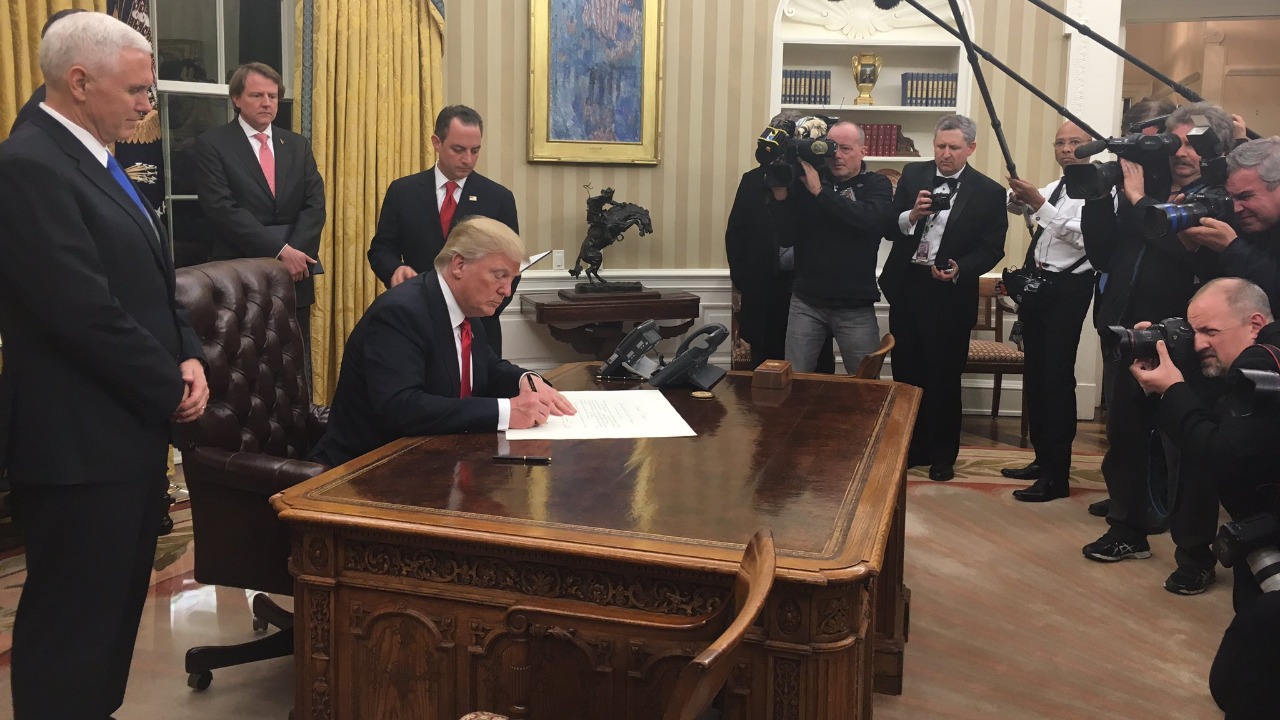
The Trump Administration has made it clear that it will not extend financial lifelines to the artificial intelligence (AI) industry, even in the event of a severe downturn or crash. This hands-off approach, announced on November 7, 2025, marks a potential shift in federal support for high-tech sectors, leaving AI companies to face economic challenges without government intervention.
Trump Administration’s Announcement
The Trump Administration’s declaration of no bailouts for the AI industry, regardless of the severity of a potential crash, is a significant policy stance. The announcement was made through official channels on November 7, 2025. The administration’s position emphasizes self-reliance for AI companies, suggesting that these firms should be prepared to weather economic storms without government assistance.
The language used in the announcement underscores the administration’s belief in the resilience and innovation of the AI industry. The message is clear: AI companies should be prepared to stand on their own, regardless of market volatility or economic downturns.
AI Sector’s Vulnerability to Crashes
The AI industry, while promising, is not immune to economic pressures. High development costs, market fluctuations, and the inherent risks associated with cutting-edge technology can all contribute to the potential for a hard crash. The Trump Administration’s announcement acknowledges these risks, suggesting that AI companies should be prepared to navigate these challenges independently.
Recent instability in the AI industry underscores the potential for economic downturns. While the specifics of these instances were not detailed in the November 7, 2025, announcement, they serve as a reminder of the volatility inherent in high-tech sectors.
Policy Shift from Previous Administrations
The Trump Administration’s no-bailout stance on AI represents a departure from previous federal interventions in high-tech sectors. Historically, the government has provided support to tech industries in times of economic crisis. However, the announcement on November 7, 2025, suggests that AI will not receive the same treatment.
The administration’s rationale for this policy shift appears to be rooted in a belief in the strength and resilience of the AI industry. By excluding AI from potential government bailouts, the administration is signaling its confidence in the industry’s ability to withstand economic pressures and continue to innovate.
Implications for AI Companies
Without the safety net of potential government bailouts, AI companies face increased financial risks. The Trump Administration’s position suggests that these firms will need to find ways to weather economic downturns independently, potentially through cost-cutting measures or seeking private funding.
In the short term, the market’s reaction to the November 7, 2025, announcement will likely be closely watched. While it’s too early to predict the long-term effects of this policy shift, it’s clear that AI companies will need to adapt to this new economic landscape.
Broader Economic Ramifications
The no-bailout policy could have far-reaching effects on the U.S. economy beyond the AI industry. The announcement could impact innovation and job growth in tech-dependent regions, and ripple effects could be felt in related industries such as semiconductors.
The administration’s firm stance could also influence investor confidence in the AI industry and related sectors. The potential for a hard crash without government intervention could make investors more cautious, potentially slowing the flow of capital into these industries.
Industry and Expert Perspectives
Reactions to the Trump Administration’s declaration of no support for the AI industry, regardless of a potential crash, have been mixed. Some industry leaders and economists have expressed concern about the policy’s long-term viability, while others see it as a necessary step to encourage self-reliance and resilience in the AI industry.
Debates over whether the November 7, 2025, position encourages or hinders AI progress are ongoing. However, the announcement has undoubtedly sparked a conversation about the role of government in supporting high-tech industries.
Future Policy Directions
Looking ahead, it’s unclear how federal AI policy under the Trump Administration might evolve. The no-bailout commitment suggests a hands-off approach, but other support mechanisms, such as regulatory changes, could emerge. The challenges for AI resilience in light of the November 7, 2025, announcement are significant, and the industry will need to adapt to this new policy landscape.
While the future of AI policy is uncertain, one thing is clear: the Trump Administration’s stance signals a new era for the AI industry, one in which companies will need to navigate economic challenges without the safety net of government bailouts.
More from MorningOverview